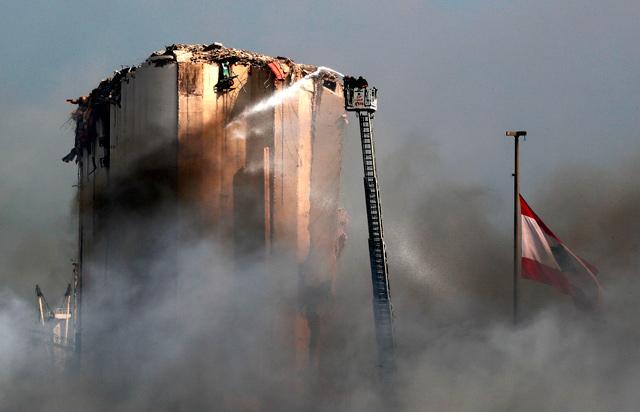
By AFP — BEIRUT — The European Union’s commissioner for crisis management on Saturday called for the urgent formation of a “credible” government in Lebanon before a second phase of financial support for the crisis-hit country can be released. Janez Lenarcic said the EU had mobilised 64 million euros ($79 million) for the emergency response to a devastating port blast that killed more than 190 people and wounded thousands in Beirut on August 4. The next round of funding would be for reconstruction, he said, but warned it would have to go hand in hand with reforms because the international community was not willing to support practices “that led to financial collapse and economic crisis”. The tragedy occurred when hundreds of tonnes of ammonium nitrate fertiliser that had been left unattended in a port warehouse exploded. It came as the Lebanese people were already reeling from the country’s worst economic crisis in decades and rekindled smouldering rage over official neglect and a political class accused of corruption.
The government resigned in the wake of the disaster, but Lebanon has rejected an international investigation, saying it would carry out its own probe aided by foreign experts. “We need a credible government that enjoys the confidence of the Lebanese people and is determined to take the country in the right direction,” Lenarcic told AFP after arriving in Lebanon on board a humanitarian aid flight. “Lebanon’s political class has to provide what people demand and this is also what the international community expects. I’m talking about governance, not only economic reforms. There has to be a change in the way this place is governed,” he said.
Lebanon’s worst economic crunch since the 1975-1990 war has seen the local currency plummet against the US dollar and poverty double to more than half of the population. The government has blamed central bank governor Riad Salameh for the crisis, though he has rejected all charges.
Lenarcic said reaching an agreement with the IMF should also be an early priority for the next government. The IMF said on Thursday it was ready to “redouble its efforts” to help Lebanon “overcome the social and economic crisis” once a new government was in place. “The EU commission supports reaching an agreement with the IMF because that would unlock substantial resources that Lebanon desperately needs to revive its economy,” Lenarcic said. Referring to the Lebanese Shiite movement Hizbollah, he said it was a “reality in Lebanon”, adding that “we would like to see the entire Lebanese political class unite behind the task”. Hizbollah has long been targeted by US sanctions and blacklisted as a “terrorist” organisation, but the Shiite group is also a powerful political player with seats in Lebanon’s parliament “We believe it should play its part in this effort,” he said.



